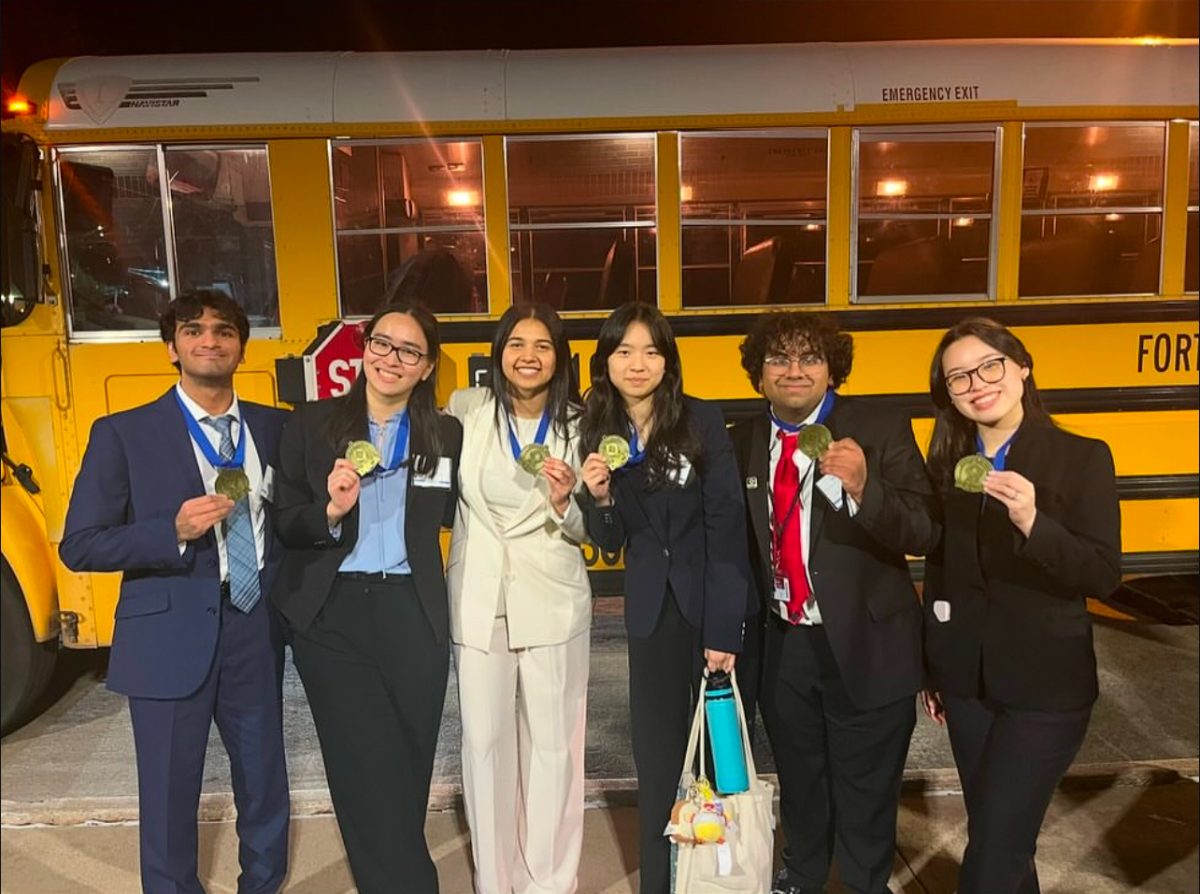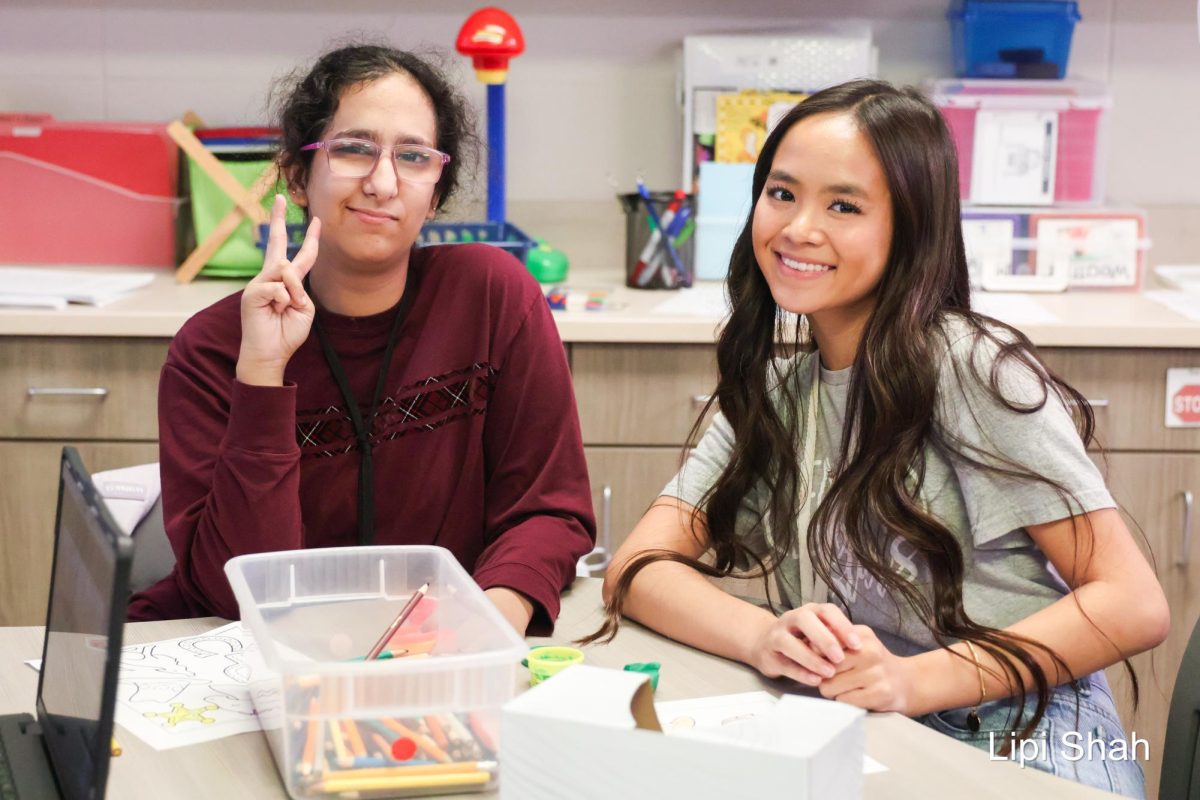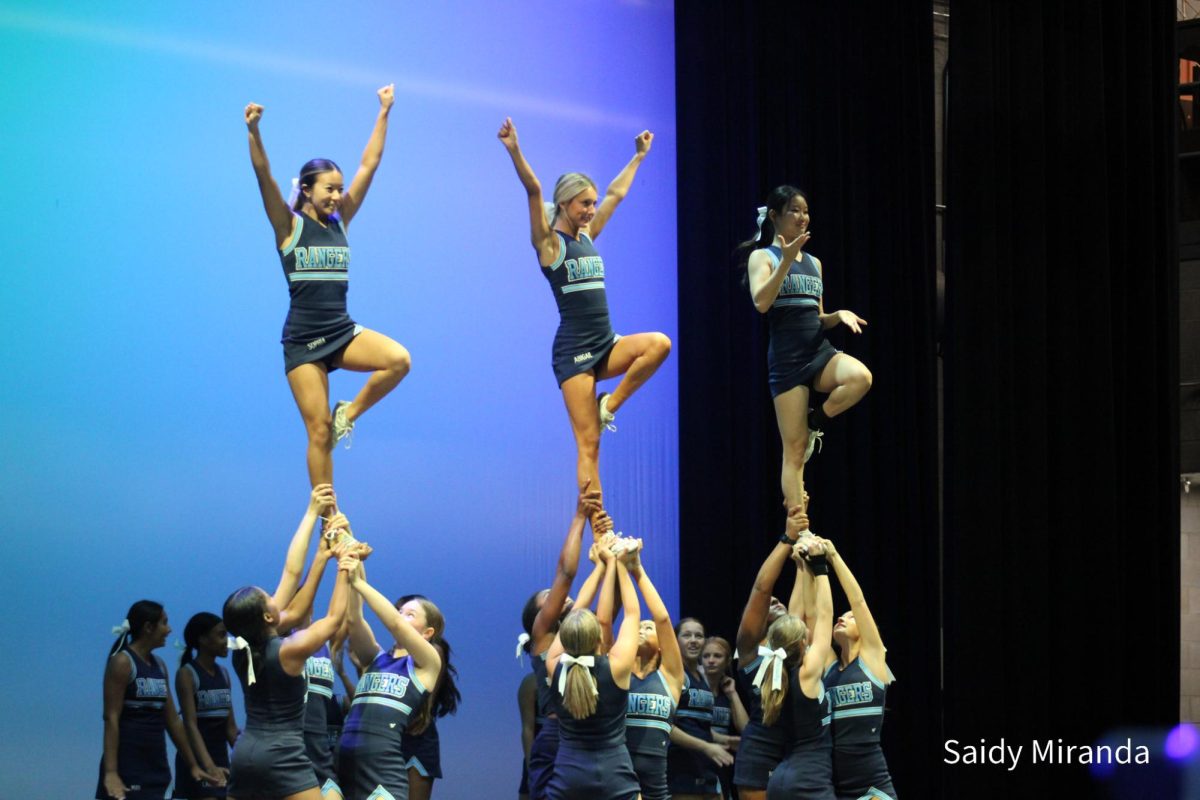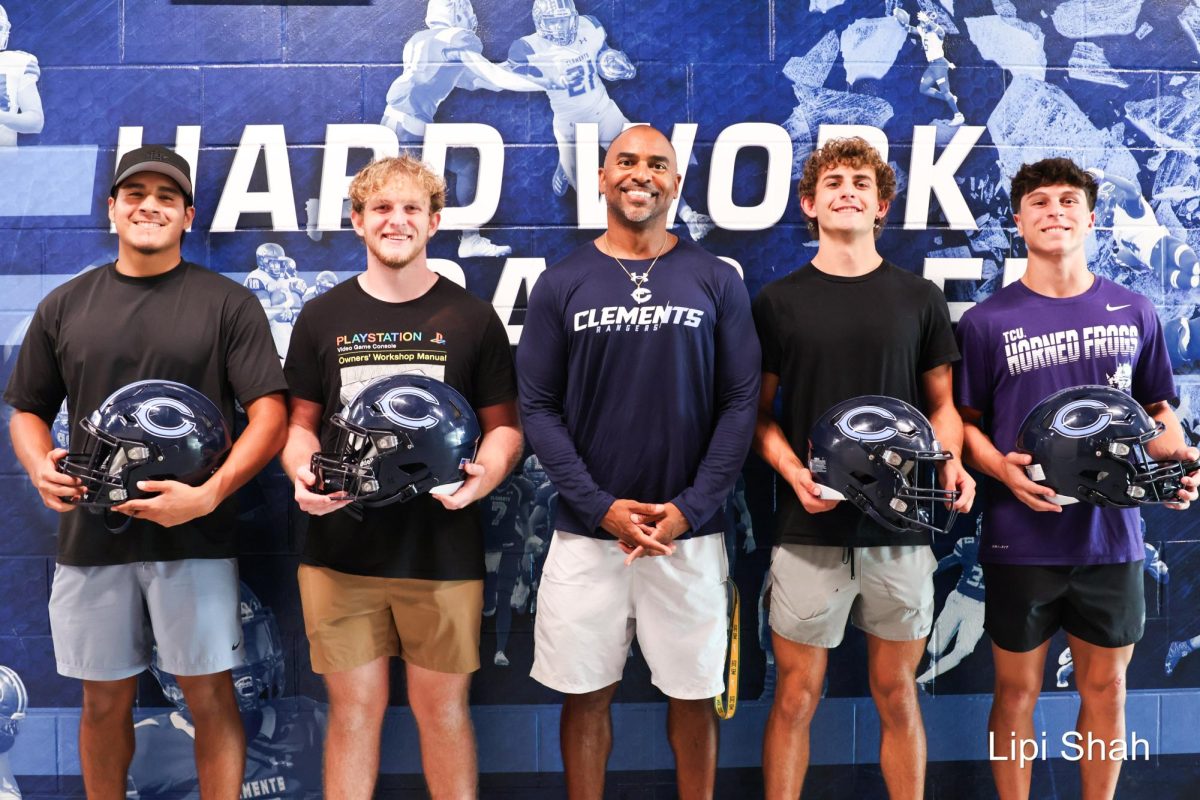As DECA students began preparing for competition season, many different approaches were taken in order to perfect their skills and better their chances of success. From role-play practice to collaborating on written events, each student took a different approach, balancing school and other commitments with DECA preparation. Districts took place on Jan. 16.
Senior Aditi Srivatsan competed in a written event this year, which was a great deal different from the impromptu speaking events she usually participates in. She said that preparation beforehand plays an important role.
“My partner and I worked a lot on making our presentation appealing while being specific and knowledgeable of all figures and statistics,” Srivatsan said. “Waiting until the deadline will bite you in the ass. Do everything ahead of time.”
Junior Emma John, for marketing communications, drew on her previous role-plays and fine-tuning public speaking. Study sessions gave her useful practice.
“I made sure to speak clearly, confidently and use strong eye contact,” John said. “The feedback from the officers really improved my presentations.”
For senior Selina Lam, the preparation included practice tests and role-plays with her fellow officers. As Competition Director, she had to advise others, which helped her get her presentation skills fine-tuned.
“Overall, based on our results at districts I’d say they were very helpful to our members and myself,” Lam said.
Juggling DECA preparation along with school and other activities requires a bit of time management. Srivatsan and her partner used the whole Thanksgiving break and free periods to finalize their presentation; junior Hana Hussain and her partner devoted whole days to DECA work.
“Take advantage of all the study sessions — there are multiple opportunities to get feedback from people who’ve done the same events as you — [and] make sure you use all the resources at your disposal,” Srivatsan said.
Each of the competitors left with something valuable in their pockets. For Lam, DECA helped boost her public speaking and confidence.
“The most valuable thing I learned from DECA was how to present myself professionally and confidently in front of a judge,” Lam said. “It really benefited my public speaking skills and confidence. “
Senior Ashish John noted that DECA honed his problem-solving skills, creative thinking – worth applying in his academic pursuits as well.
“One of the most important lessons of DECA has been a more developed approach to problem solving,” John said. “Doing role plays, putting myself in professional scenarios to explain foundational business concepts and apply them so solutions have raised the standard for my creative, service, and academic pursuits. These skills carry over well into classes like English as well.”
The most common piece of advice from seasoned competitors was to start early and practice consistently. John believes that being confident and always having solutions is the best way to go.
“One of the most important things is spontaneous, confident self expression and creativity,” John said. “While the tests call for formal, theoretical knowledge of business, you can somewhat get away without hard data or big words in role plays. Think of problems that need solving and come up with solutions. Check out YouTube channels like How Money Works or CNBC.”
Students used various approaches to prepare for the competition-structured study sessions, projects, or even experiences from previous years. Despite their differing approaches, early preparation, consistent practice, and self-confidence were key to their success. Future competitors can take these lessons to heart for a rewarding DECA experience.
“DECA changed my life,” Srivatsan said. “I am someone that shies away in a social setting but DECA helped me connect with others and I found life long friends because of it. DECA helped me for my future when it comes to working and making connections. I am proud to say that joining DECA was the best decision I could have made.”









Noelle G Banks • Mar 6, 2025 at 8:39 pm
I love how you mentioned what its taught the Deca members and advice rather then soley just about the competition aspect. Such as problem solving which is applicable to not only school. This was very well written and informing.
Muhammad Hashmi • Feb 25, 2025 at 7:50 am
I like how you talked about the other things that came from deca other than just wins. You talked about things like public speaking and it showed how deca can still be beneficial even if you dont advance. This was an interesting perspective and I liked it.